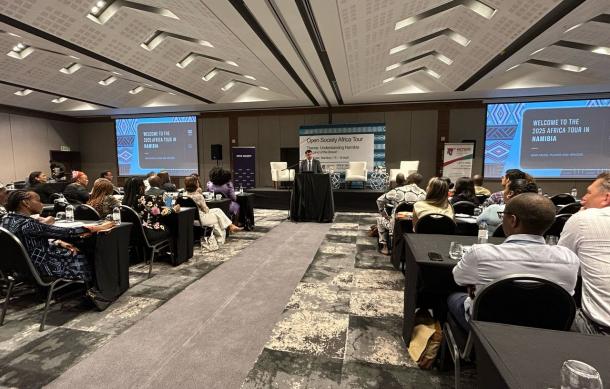
Women, youth, traditional leaders, academics, and civil society play a crucial role in shaping Africa’s reparation agenda by reinforcing the growing call for global acknowledgment, solidarity, and justice.
For this reason, the Open Society Foundations is hosting a two-day dialogue and high-level panel on Women’s Leadership and Reparative Justice in Windhoek today.
At the event, the Chairperson of the Action Namibia Coalition reminded participants that access to information enables democratic participation and accountability from society towards those in leadership positions, promoting meaningful conversations.
However, Frederico Links emphasized that Namibia still has a long way to go infostering dialogue and participation from all sectors, particularly in the ongoing Genocide Consultation.
In her speech, theMinisterof Education, Innovation, Youth, Sport, Arts, and Culture stated that the platform serves not only as a conversation but also as an opportunity to enhance solidarity and justice.
Sanet Steenkamp reminded civil society of the important role they play in holding the government accountable.
Her speech was read by her deputy minister, Dino Balloti.
The dialogue brings together women, youth, cultural leaders, academics, and international human rights experts to explore how young people and women are shaping the reparations era by reimagining prosperity as collective well-being rooted in accountability, equity, and ecological stewardship.
The Open Society Foundations, founded by American investor and philanthropist George Soros, is the world’s largest private funder of independent groups working for rights, equity, and justice.





